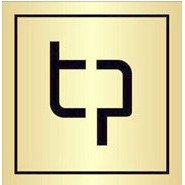Best Education Law Lawyers in Cambodia
Share your needs with us, get contacted by law firms.
Free. Takes 2 min.
Or refine your search by selecting a city:
List of the best lawyers in Cambodia
About Education Law in Cambodia
Education Law in Cambodia encompasses the statutes, regulations, policies, and constitutional provisions that govern the country's education system. This body of law is primarily aimed at ensuring the right to education for all Cambodian citizens, maintaining educational standards, and promoting equal opportunities. Cambodia's Constitution guarantees free primary and lower-secondary education. Additionally, the Ministry of Education, Youth and Sport (MoEYS) plays a pivotal role in implementing education policies and ensuring that educational institutions comply with the legal framework.
Why You May Need a Lawyer
Individuals and organizations may require legal assistance in Education Law for a variety of reasons. Common scenarios include disputes over school admissions, cases of discrimination or unequal treatment, issues related to education funding, compliance with educational standards, and conflicts involving teachers' rights and responsibilities. Additionally, families may seek legal advice if a student's rights have been violated or if there are issues related to special education needs.
Local Laws Overview
The key aspects of Education Law in Cambodia include the Constitution's provisions on the right to education, the Education Law of Cambodia which sets the framework for the national education system, and various regulations and decrees issued by MoEYS. Crucial topics under these laws include the structure of the education system, school governance, teacher qualifications and responsibilities, student rights, and measures to ensure accessibility and quality of education across the country.
Frequently Asked Questions
What is the compulsory education age in Cambodia?
Compulsory education in Cambodia covers primary and lower-secondary education, generally for children aged 6 to 15 years.
Are there laws against discrimination in schools?
Yes, Cambodia has laws and policies that prohibit discrimination in education based on race, gender, ethnicity, religion, or disability.
Can schools impose their own rules independently?
While schools can establish specific rules, they must align with national regulations and guidelines set by MoEYS.
What legal framework governs private education institutions?
Private education institutions operate under the same overarching Education Law but have additional specific guidelines regarding their establishment and operation.
Are there legal obligations for special education in Cambodia?
Yes, there are policies promoting inclusive education for students with disabilities, though implementation can vary across regions.
How are disputes between teachers and schools handled legally?
Disputes can often be resolved through administrative procedures, but legal action might be necessary if these fail to offer a resolution.
Is parental involvement required by educational law?
Parental involvement is encouraged, and certain laws emphasize the role of parents in monitoring and supporting their children's education.
What recourse is available if a student's rights are violated?
Students and guardians can file complaints with educational authorities or seek legal action if rights are violated.
How does the government ensure educational quality?
The government, through MoEYS, sets and enforces standards for curriculum, teacher qualifications, infrastructure, and school inspections to maintain quality education.
Are there legal safeguards for education financing?
Yes, the government is committed to ensuring adequate funding for education and has measures to prevent misallocation of educational resources.
Additional Resources
For further assistance, individuals can refer to:
- The Ministry of Education, Youth and Sport (MoEYS): The primary governmental body for education in Cambodia.
- Education NGOs such as Aide et Action or Child Rights Foundation: These organizations often provide information and resources related to education rights.
- Legal aid organizations that specialize in education-related issues, offering free or low-cost services to those in need.
Next Steps
If you require legal assistance in the field of Education Law, consider the following steps:
1. Identify the specific issue and gather all related documents and evidence.
2. Reach out to local legal professionals who specialize in Education Law through bar associations or legal aid networks.
3. Consult with educational authorities for assistance or clarification, especially in regulatory compliance issues.
4. Utilize available resources from NGOs or governmental bodies to get further guidance and support.
5. Consider mediation or alternative dispute resolution mechanisms if appropriate and suggested by legal counsel.
Lawzana helps you find the best lawyers and law firms in Cambodia through a curated and pre-screened list of qualified legal professionals. Our platform offers rankings and detailed profiles of attorneys and law firms, allowing you to compare based on practice areas, including Education Law, experience, and client feedback.
Each profile includes a description of the firm's areas of practice, client reviews, team members and partners, year of establishment, spoken languages, office locations, contact information, social media presence, and any published articles or resources. Most firms on our platform speak English and are experienced in both local and international legal matters.
Get a quote from top-rated law firms in Cambodia — quickly, securely, and without unnecessary hassle.
Disclaimer:
The information provided on this page is for general informational purposes only and does not constitute legal advice. While we strive to ensure the accuracy and relevance of the content, legal information may change over time, and interpretations of the law can vary. You should always consult with a qualified legal professional for advice specific to your situation.
We disclaim all liability for actions taken or not taken based on the content of this page. If you believe any information is incorrect or outdated, please contact us, and we will review and update it where appropriate.
Browse education law law firms by city in Cambodia
Refine your search by selecting a city.









